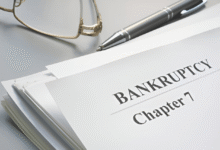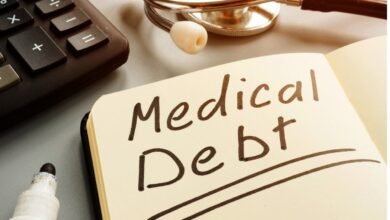Student Loan Debt and Bankruptcy: What You Need to Know

Student loan debt has become an undeniable reality for millions pursuing higher education. As tuition costs rise, so does the burden of student loans. In this article, we will delve into the intricate relationship between student loan debt and bankruptcy, unraveling the complexities that borrowers face.
Definition of Student Loan Debt
Student loan debt is a financial obligation that individuals incur to fund their education. It encompasses various loan types, each with its terms and conditions.
The Complex Nature of Student Loan Debt
Unlike other debts, student loan debt carries unique challenges due to its long-term nature and potential impact on borrowers’ financial well-being.
The Link Between Student Loan Debt and Bankruptcy
Bankruptcy emerges as a potential solution for those overwhelmed by debt, but the interplay between student loans and default is nuanced.
Understanding Student Loan Debt
Types of Student Loans
Student loans come in various forms, including federal and private loans, with distinct features and implications.
Interest Rates and Repayment Terms
Understanding the interest rates and repayment terms is crucial for borrowers to manage their debt effectively.
Impact on Borrowers’ Financial Health
The weight of student loan debt can significantly affect borrowers’ financial stability, influencing major life decisions.
Bankruptcy and Student Loan Debt
Bankruptcy Basics
Bankruptcy is a legal process designed to provide individuals with a fresh financial start, but its impact on student loan debt is limited.
The Myth of Discharging Student Loan Debt
Contrary to popular belief, discharging student loan debt through bankruptcy is complex and challenging.
The Role of Adversary Proceedings
Adversary proceedings may be necessary to prove undue hardship for discharging student loans in bankruptcy.
Navigating Bankruptcy with Student Loans
Chapter 7 Bankruptcy
Chapter 7 bankruptcy involves liquidating assets to pay off debts, but its effect on student loans is often minimal.
Chapter 13 Bankruptcy
Chapter 13 bankruptcy allows for a repayment plan, providing a structured approach to managing debts, including student loans.
The Brunner Test for Student Loan Discharge
The Brunner Test sets a high standard for proving undue hardship, making it challenging for many borrowers.
Read More: Filing for Bankruptcy: A Step-by-Step Guide
Alternatives to Bankruptcy
Income-Driven Repayment Plans
Income-driven repayment plans offer a more flexible approach to managing student loan payments based on income.
Loan Forgiveness Programs
Certain professions may qualify for loan forgiveness programs, alleviating the burden of student loan debt.
Negotiating with Lenders
Open communication and negotiation with lenders can lead to revised repayment terms and options.
The Emotional Toll
Mental Health Implications of Student Loan Debt
The emotional toll of student loan debt can impact mental health, leading to stress and anxiety.
Coping Strategies for Financial Stress
Implementing coping strategies can help individuals manage the emotional challenges associated with student loan debt.
Legal Considerations
Seeking Legal Counsel
Navigating the complexities of student loan debt and bankruptcy often requires professional legal advice.
Stay Informed about Legislative Changes
Legislative changes can impact the options available to borrowers, highlighting the importance of staying informed.
Understanding the Statute of Limitations
Awareness of the statute of limitations is crucial, as it defines the timeframe for lenders to pursue legal action.
Real-life Stories
Personal Narratives of Individuals Managing Student Loan Debt and Bankruptcy
Real-life stories provide insights into the challenges and successes of individuals navigating the intersection of student loan debt and bankruptcy.
Planning for the Future
Financial Literacy Education
Enhancing financial literacy can empower individuals to make informed decisions about managing their finances.
Budgeting and Financial Planning
Implementing budgeting and financial planning strategies can contribute to long-term financial stability.
Building Credit After Bankruptcy
Rebuilding credit is crucial post-bankruptcy, opening doors to future economic opportunities.
Read More: Bankruptcy and Business: How to Deal with Corporate Insolvency
Conclusion
In conclusion, understanding the dynamics of student loan debt and bankruptcy is essential for individuals grappling with economic challenges. While bankruptcy may relieve some debts, the road to discharging student loans is complex. Exploring alternative repayment plans, seeking legal counsel, and prioritizing financial well-being is integral to managing student loan debt.
FAQs
Can all types of student loans be discharged in bankruptcy?
No, discharging student loans in bankruptcy is challenging and typically requires meeting the stringent criteria of the Brunner Test.
What are some alternative options to bankruptcy for managing student loan debt?
Alternatives include income-driven repayment plans, loan forgiveness programs, and negotiating with lenders for revised terms.
How does bankruptcy impact credit scores?
Bankruptcy can hurt credit scores, but rebuilding credit is possible over time.
Are there specific professions eligible for student loan forgiveness programs?
Certain professions, such as public service or teaching, may qualify for loan forgiveness programs.
Is seeking legal counsel necessary when dealing with student loan debt and bankruptcy?
Yes, given the complexities involved, seeking legal advice is crucial to navigating the legal system’s intricacies.












One Comment